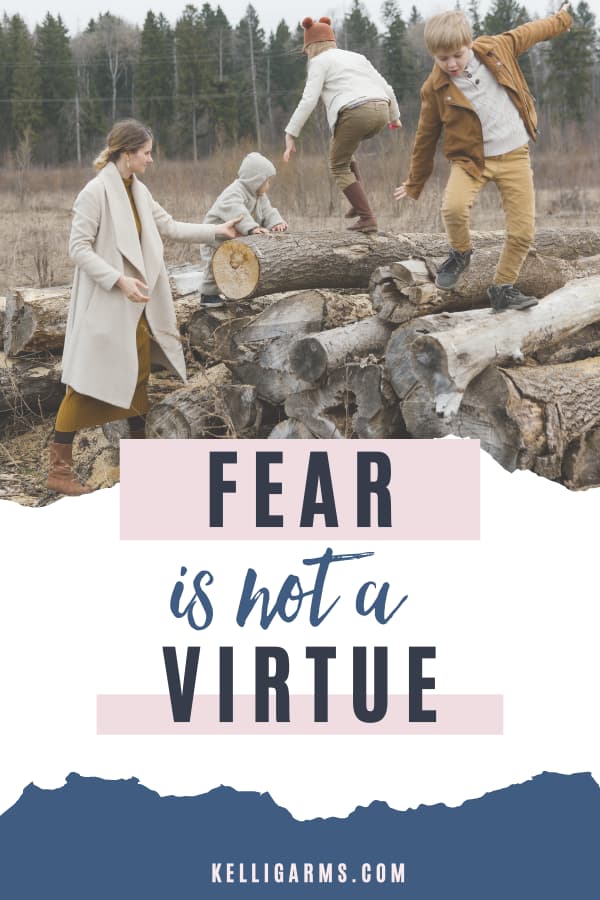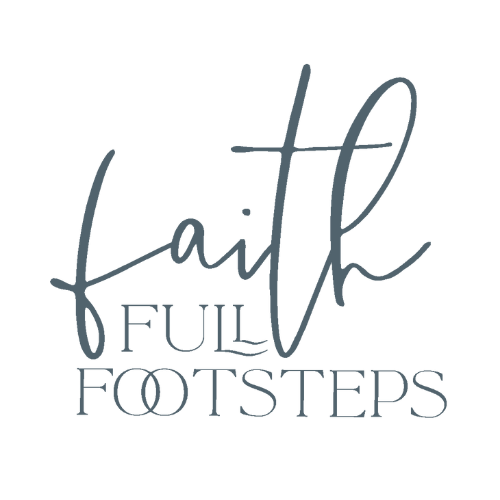This fallen world has a knack for turning everything on its head: what was bad is now good, what was wrong is now right, 2+2 no longer equals 4, and fear has become a virtue.
Before 2020, it was common for me to see several posts per day in my social media feeds telling me to “do it scared,” “rise above the fear,” or “let your faith be bigger than your fear.” I noticed a dramatic decrease of those pretty graphics around the same time the lockdowns began. It seems like we have accepted fear as our “new normal” instead of something we need to work through, rise above, or defeat.
Origin of Fear
As Christians, it is important for us to understand the origin of fear. Some teach that fear is innate; we were created with a “fight or flight” response that was intended to protect us from predators. But that’s not what the Bible teaches.
Man was not created fearful. Man was created and placed into a perfect world where there was nothing to fear—no natural disasters, no illness, no violence.
When you read Genesis, you discover that all of the animals (and humans) were vegetarian, so they didn’t hunt each other. Rain did not make its appearance until the flood. And think about the fact that Eve was not startled by a talking snake. There was nothing to fear in the Garden of Eden. And then man sinned.
Fear Began at the Fall
The first time fear is mentioned in Scripture is after the fall. Adam heard God in the garden, and he was afraid. God had never given Adam a reason to fear Him, yet once Adam sinned and realized he had broken God’s one command, he was afraid. Fear is a result of sin, and fear is learned through our experiences.
Fear Is Learned
Children are fearless. They have to be taught to steer clear of campfire flames, be careful with sharp objects, and back away from steep drop offs. Fear is not innate; it is learned through experiences. Even a child’s fear of the dark doesn’t begin until she has seen or heard something that causes the fear.
The same can be said for adults. Our fears come from our past experiences or what we have learned. There have been times when friends have expressed a fear that seems ridiculous to me, not because I think my friends are ridiculous, but because I haven’t shared their experiences, and therefore do not share their fears. And there have been times when I have shared a fear that seems completely unfounded to my listeners.
Fears, like every other thought, are based on our beliefs. In fact, analyzing our fears is a great way to nail down what we actually believe. Do we really believe God is in control? Do we truly believe our days were numbered before we were even conceived? Do we really believe all things work together for God’s glory? Or do our fears contradict what we claim to believe?
I can honestly say I have been challenged in this area lately. I found that my anxiety was overwhelming me even though I have never been a naturally anxious person. I was consuming too much of the world, and my fears were reflecting beliefs I didn’t realize were taking root.

Fear Is a Lie
Let me be clear: your feelings of fear are real, but the object of your fear is a lie. Fear is based on a prediction of something that hasn’t happened yet, and may not happen at all. We think we can foresee an outcome based on past experiences, and while this may be true when it comes to touching a hot stove, it cannot be applied to our circumstances.
Whether I’m afraid of illness, suffering, loss, embarrassment, or any number of other things, the fear is me trying to predict the future based on past experiences, not truth. And my goal in that fear is to protect myself, yet I have no control over anything that happens.
My friend, Anneliese said it this way: “Fear is the frantic attempt to know the unknowable; to defend oneself from adversity in advance, to anticipate the worst and never let one’s guard down. It seeks to walk by sight in direct contradiction to our calling as Christians to walk by faith” (@feminine_not_feminist on Instagram).
How To Overcome Fear
The King James Version of the Bible uses the phrase “Fear not” 365 times, but the topic of fear (and similar ideas) is discussed in Scripture more than 500 times. We are told in 2 Timothy 1:7 that “[…] God gave us a spirit not of fear but of power and love and self-control.”
In the verse right before that, Paul tells Timothy to “fan into flame the gift of God.” We can overcome fear by focusing on “fanning into flame the gift of God” instead of dwelling on our fears.
You might be thinking it is impossible to control your thoughts. The fears are there whether you want them or not. But your mind cannot multitask. It cannot focus on two things at the same time. So when you find your thoughts turning to fear, you can steer your mind to other things instead.
What you dwell on, grows. What you consume is what you will produce. Choose to consume and dwell on the things of God, so those things will grow.
When I noticed my anxiety levels rising, I had to attack the false beliefs of fear with the Truth of Scripture. I memorized Scriptures that I would recite when I felt the fear gripping me. When I focus on the verses I’m quoting, my mind can’t think about the fear.
1 John 4:18 says, “There is no fear in love, but perfect love casts out fear.” Since love and fear can’t coexist, use moments of worry, fear, and anxiety to remind you about the people you love, to push you to develop your love for Jesus, or to plan something for your spouse or children. Rather than allowing your fear to drag you down, use it as a trigger to better love those around you.

Why We Hold On to Fear
It might surprise you to realize that fear makes us think we have control. We hold on to our fear because it gives us the sense that there is something we can do to keep ourselves and our loved ones safe or comfortable. It convinces us that we know the best course of action to take.
But 1 Peter 5:6-7 says to “Humble yourselves, therefore, under the mighty hand of God so that at the proper time he may exalt you, casting all your anxieties on him, because he cares for you.” You are invited to give up your fears and lay them at the feet of Jesus, but it takes humility. It takes giving up the semblance of control. It takes acknowledging your weakness. Are you willing to do that?
“God invites you to hope-driven obedience. The enemy wants fear-bound stagnancy” (Anneliese).
Don’t let the world define your “normal.” Christ came to give us abundant life (John 10:10), not a life of fear. Scripture challenges us to overcome our fears, set our minds on things above, and lean into the knowledge that we are known and loved by our Creator!







0 Comments